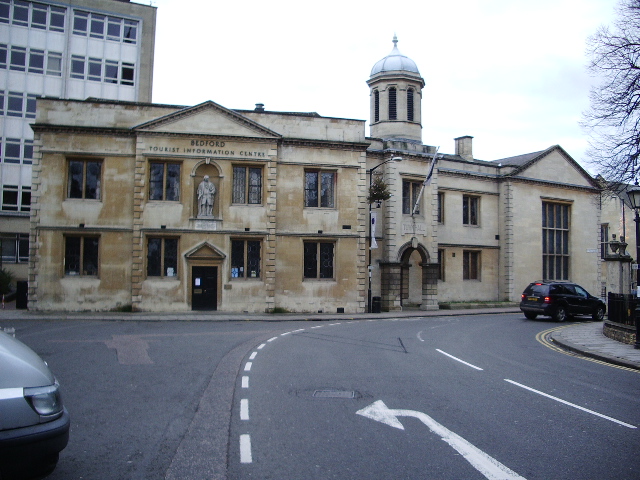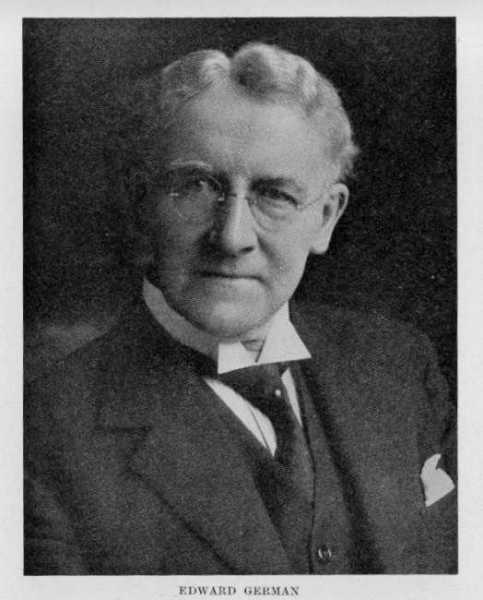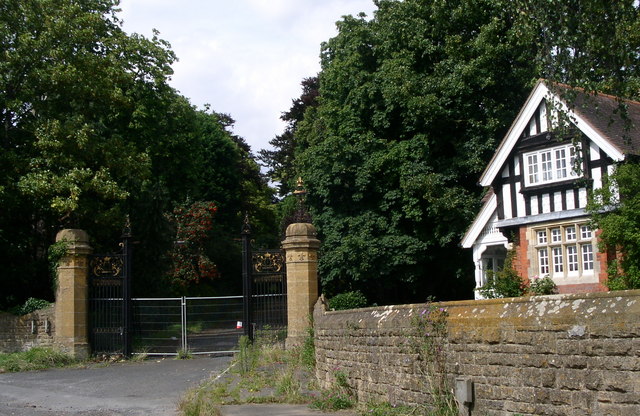|
Gillie Potter
Hugh William Peel (14 September 1887 – 4 March 1975), better known as Gillie Potter, was an English comedian and broadcaster. Life He was born in Bedford to Brignal Peel (died 1933), a Wesleyan minister, and Elizabeth Stimson. He was educated at Bedford Modern School and for a time at Worcester College, Oxford. Potter first performed in Edwin Milton Royle's ''The White Man'' at the Lyric Theatre in London before touring. In 1915 he was George Robey's understudy at the Alhambra. During the First World War he served in the Royal Field Artillery and was commissioned as a second lieutenant in February 1917. He returned to music hall after the war. He cultivated an individual style and persona, wearing a straw boater, wide grey flannel trousers (he claimed he invented the Oxford bags style at the London Coliseum in 1920), and an "Old Borstolian" blazer, and carried a notebook with a rolled umbrella. James Agate described him as "that sham Harrovian who bears upon his blaze ... [...More Info...] [...Related Items...] OR: [Wikipedia] [Google] [Baidu] |
Bedford
Bedford is a market town in Bedfordshire, England. At the 2011 Census, the population of the Bedford built-up area (including Biddenham and Kempston) was 106,940, making it the second-largest settlement in Bedfordshire, behind Luton, whilst the Borough of Bedford had a population of 157,479. Bedford is also the historic county town of Bedfordshire. Bedford was founded at a ford on the River Great Ouse and is thought to have been the burial place of King Offa of Mercia, who is remembered for building Offa's Dyke on the Welsh border. Bedford Castle was built by Henry I of England, Henry I, although it was destroyed in 1224. Bedford was granted borough status in 1165 and has been represented in Parliament since 1265. It is known for its large Italians in the United Kingdom, population of Italian descent. History The name of the town is believed to derive from the name of a Saxon chief called Beda, and a Ford (crossing), ford crossing the River Great Ouse. Bedford was a marke ... [...More Info...] [...Related Items...] OR: [Wikipedia] [Google] [Baidu] |
Royal Variety Performance
The ''Royal Variety Performance'' is a televised variety show held annually in the United Kingdom to raise money for the Royal Variety Charity (of which King Charles III is life-patron). It is attended by senior members of the British royal family. The evening's performance is presented as a live variety show, usually from a theatre in London and consists of family entertainment that includes comedy, music, dance, magic and other speciality acts. The ''Royal Variety Performance'' traditionally begins with the entrance of the members of the royal family followed by singing of the national anthem, God Save the King, which was also performed by the participating acts as a traditional end to Royal Variety Performances; with the exception of 2020 due to the coronavirus pandemic, as a result of which, As If We Never Said Goodbye opened that year's show instead, sung by that year's host, Jason Manford. Background and founding The first performance, on 1 July 1912, was called the Roy ... [...More Info...] [...Related Items...] OR: [Wikipedia] [Google] [Baidu] |
Penguin Books
Penguin Books is a British publishing, publishing house. It was co-founded in 1935 by Allen Lane with his brothers Richard and John, as a line of the publishers The Bodley Head, only becoming a separate company the following year."About Penguin – company history" , Penguin Books. Penguin revolutionised publishing in the 1930s through its inexpensive paperbacks, sold through Woolworths Group (United Kingdom), Woolworths and other stores for Sixpence (British coin), sixpence, bringing high-quality fiction and non-fiction to the mass market. Its success showed that large audiences existed for serious books. It also affected modern British popular culture significantly through its books concerning politics, the arts, and science. Penguin Books is now an imprint (trade name), imprint of the ... [...More Info...] [...Related Items...] OR: [Wikipedia] [Google] [Baidu] |
Merry England
"Merry England", or in more jocular, archaic spelling "Merrie England", refers to a utopian conception of English society and culture based on an idyllic pastoral way of life that was allegedly prevalent in Early Modern Britain at some time between the Middle Ages and the onset of the Industrial Revolution. More broadly, it connotes a putative essential Englishness with nostalgic overtones, incorporating such cultural symbols as the thatched cottage, the country inn and the Sunday roast. "Merry England" is not a wholly consistent vision, but rather a revisited England described as "a world that has never actually existed, a visionary, mythical landscape, where it is difficult to take normal historical bearings." It may be treated both as a product of the sentimental nostalgic imagination and as an ideological or political construct, often underwriting various sorts of conservative world-views. Favourable perceptions of Merry England reveal a nostalgia for aspects of an ear ... [...More Info...] [...Related Items...] OR: [Wikipedia] [Google] [Baidu] |
Edward German
Sir Edward German (17 February 1862 – 11 November 1936) was an English musician and composer of Welsh descent, best remembered for his extensive output of incidental music for the stage and as a successor to Arthur Sullivan in the field of English comic opera. Some of his light operas, especially '' Merrie England'', are still performed. As a youth, German played the violin and led the town orchestra of Whitchurch, Shropshire. He also began to compose music. While performing and teaching violin at the Royal Academy of Music, German began to build a career as a composer in the mid-1880s, writing serious music as well as light opera. In 1888, he became music director of the Globe Theatre in London. He provided popular incidental music for many productions at the Globe and other London theatres, including ''Richard III'' (1889), ''Henry VIII'' (1892) and ''Nell Gwynn'' (1900). He also wrote symphonies, orchestral suites, symphonic poems and other works. He also wrote a consi ... [...More Info...] [...Related Items...] OR: [Wikipedia] [Google] [Baidu] |
Arthur Sullivan
Sir Arthur Seymour Sullivan (13 May 1842 – 22 November 1900) was an English composer. He is best known for 14 comic opera, operatic Gilbert and Sullivan, collaborations with the dramatist W. S. Gilbert, including ''H.M.S. Pinafore'', ''The Pirates of Penzance'' and ''The Mikado''. His works include 24 operas, 11 major orchestral works, ten choral works and oratorios, two ballets, incidental music to several plays, and numerous church pieces, songs, and piano and chamber pieces. His hymns and songs include "Onward, Christian Soldiers" and "The Lost Chord". The son of a military bandmaster, Sullivan composed his first anthem at the age of eight and was later a soloist in the boys' choir of the Chapel Royal. In 1856, at 14, he was awarded the first Mendelssohn Scholarship by the Royal Academy of Music, which allowed him to study at the academy and then at the Felix Mendelssohn College of Music and Theatre, Leipzig Conservatoire in Germany. His graduation piece, inc ... [...More Info...] [...Related Items...] OR: [Wikipedia] [Google] [Baidu] |
Edward Elgar
Sir Edward William Elgar, 1st Baronet, (; 2 June 1857 – 23 February 1934) was an English composer, many of whose works have entered the British and international classical concert repertoire. Among his best-known compositions are orchestral works including the ''Enigma Variations'', the ''Pomp and Circumstance Marches'', concertos for Violin Concerto (Elgar), violin and Cello Concerto (Elgar), cello, and two symphony, symphonies. He also composed choral works, including ''The Dream of Gerontius'', chamber music and songs. He was appointed Master of the King's Musick in 1924. Although Elgar is often regarded as a typically English composer, most of his musical influences were not from England but from continental Europe. He felt himself to be an outsider, not only musically, but socially. In musical circles dominated by academics, he was a self-taught composer; in Protestant Britain, his Roman Catholicism was regarded with suspicion in some quarters; and in the class-consci ... [...More Info...] [...Related Items...] OR: [Wikipedia] [Google] [Baidu] |
Evesham
Evesham () is a market town and parish in the Wychavon district of Worcestershire, in the West Midlands region of England. It is located roughly equidistant between Worcester, Cheltenham and Stratford-upon-Avon. It lies within the Vale of Evesham, an area comprising the flood plain of the River Avon, which has been renowned for market gardening. The town centre, situated within a meander of the river, is subjected regularly to flooding. The 2007 floods were the most severe in recorded history. The town was founded around an 8th-century abbey, one of the largest in Europe, which was destroyed during the Dissolution of the Monasteries, with only Abbot Lichfield's Bell Tower remaining. During the 13th century, one of the two main battles of England's Second Barons' War took place near the town, marking the victory of Prince Edward, who later became King Edward I; this was the Battle of Evesham. History Evesham is derived from the Old English ''homme'' or ''ham'', and ''Eof'' ... [...More Info...] [...Related Items...] OR: [Wikipedia] [Google] [Baidu] |
Wood Norton Hall
Wood Norton Hall is a Grade II* listed Victorian stately home to the northwest of Evesham, Worcestershire, England. It was the last home in England of Prince Philippe, Duke of Orléans, who claimed the throne of France. Used by the British Broadcasting Corporation during World War II as a station for listening to enemy radio broadcasts and an emergency broadcasting centre, it became the accommodation for the BBC's engineering training college that grew up in its grounds. The BBC retained purpose-built facilities in the grounds for technical training after selling the Hall, which became a hotel. History The site of a dwelling since medieval times, Wood Norton was once the home of Prince Philippe, Duke of Orléans, the last pretender to the throne of France. The 'Great Gates' at the entrance of the house had once stood before York House in Twickenham, the Duke's previous home . Its position - hidden within acres of remote woodland on a hill facing south - made it ideal for of ... [...More Info...] [...Related Items...] OR: [Wikipedia] [Google] [Baidu] |
Second World War
World War II or the Second World War, often abbreviated as WWII or WW2, was a world war that lasted from 1939 to 1945. It involved the vast majority of the world's countries—including all of the great powers—forming two opposing military alliances: the Allies and the Axis powers. World War II was a total war that directly involved more than 100 million personnel from more than 30 countries. The major participants in the war threw their entire economic, industrial, and scientific capabilities behind the war effort, blurring the distinction between civilian and military resources. Aircraft played a major role in the conflict, enabling the strategic bombing of population centres and deploying the only two nuclear weapons ever used in war. World War II was by far the deadliest conflict in human history; it resulted in 70 to 85 million fatalities, mostly among civilians. Tens of millions died due to genocides (including the Holocaust), starvation, ma ... [...More Info...] [...Related Items...] OR: [Wikipedia] [Google] [Baidu] |
Oxfordshire
Oxfordshire is a ceremonial and non-metropolitan county in the north west of South East England. It is a mainly rural county, with its largest settlement being the city of Oxford. The county is a centre of research and development, primarily due to the work of the University of Oxford and several notable science parks. These include the Harwell Science and Innovation Campus and Milton Park, both situated around the towns of Didcot and Abingdon-on-Thames. It is a landlocked county, bordered by six counties: Berkshire to the south, Buckinghamshire to the east, Wiltshire to the south west, Gloucestershire to the west, Warwickshire to the north west, and Northamptonshire to the north east. Oxfordshire is locally governed by Oxfordshire County Council, together with local councils of its five non-metropolitan districts: City of Oxford, Cherwell, South Oxfordshire, Vale of White Horse, and West Oxfordshire. Present-day Oxfordshire spanning the area south of the Thames was h ... [...More Info...] [...Related Items...] OR: [Wikipedia] [Google] [Baidu] |
Who's Who
''Who's Who'' (or ''Who is Who'') is the title of a number of reference publications, generally containing concise biography, biographical information on the prominent people of a country. The title has been adopted as an expression meaning a group of notable persons. The oldest and best-known is the annual publication ''Who's Who (UK), Who's Who'', a reference work on contemporary prominent people in Britain published annually since 1849. In addition to legitimate reference works, some ''Who's Who'' lists involve the selling of "memberships" in fraudulent directories that are created online or through instant publishing services. AARP, the University at Buffalo and the Government of South Australia have published warnings of these ''Who's Who'' scams. Notable examples by country * ''Who's Who (UK), Who's Who'', the oldest listing of prominent British people since 1849; people who have died since 1897 are listed in ''Who Was Who.'' * ''Cambridge Who's Who'' (also known as ''Wor ... [...More Info...] [...Related Items...] OR: [Wikipedia] [Google] [Baidu] |










